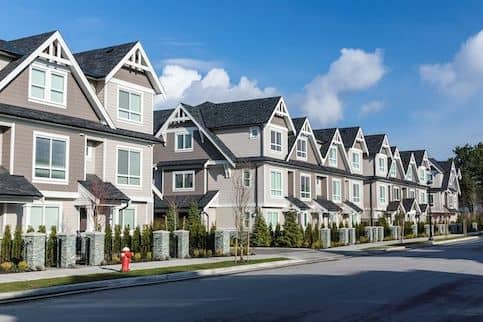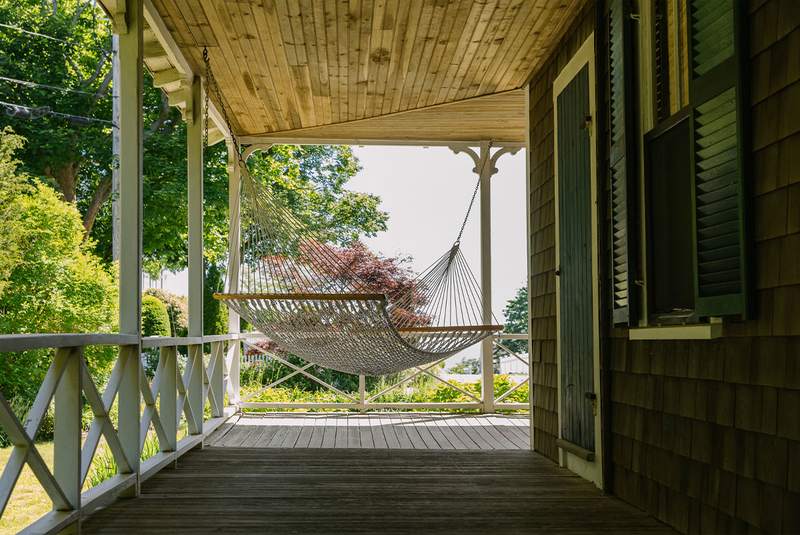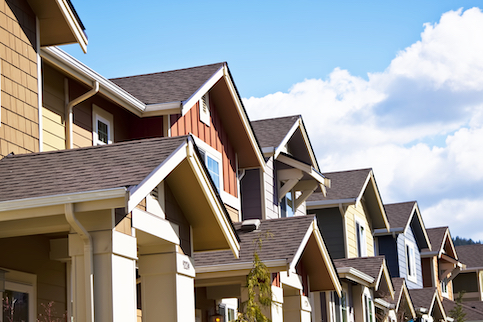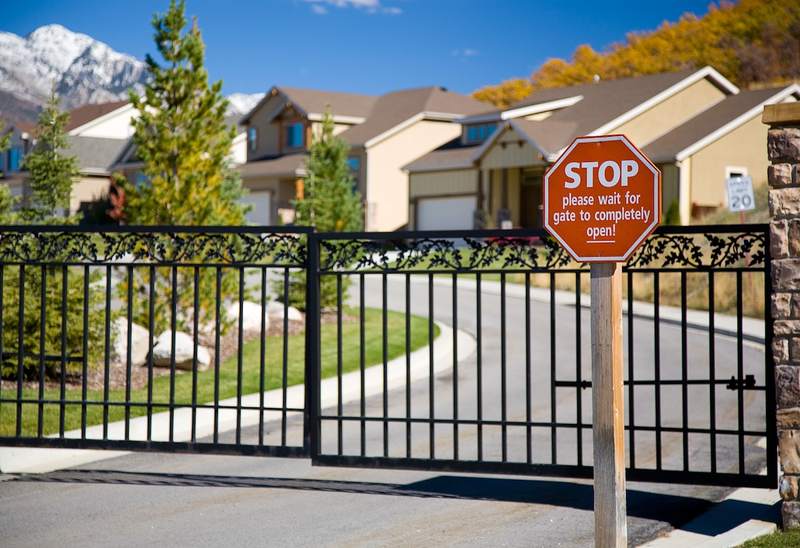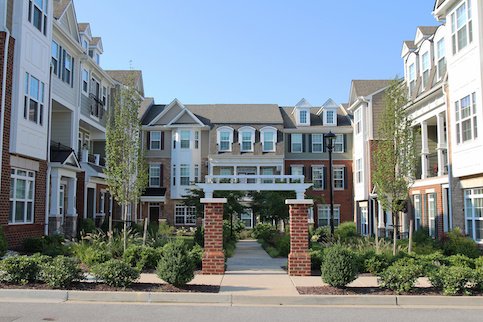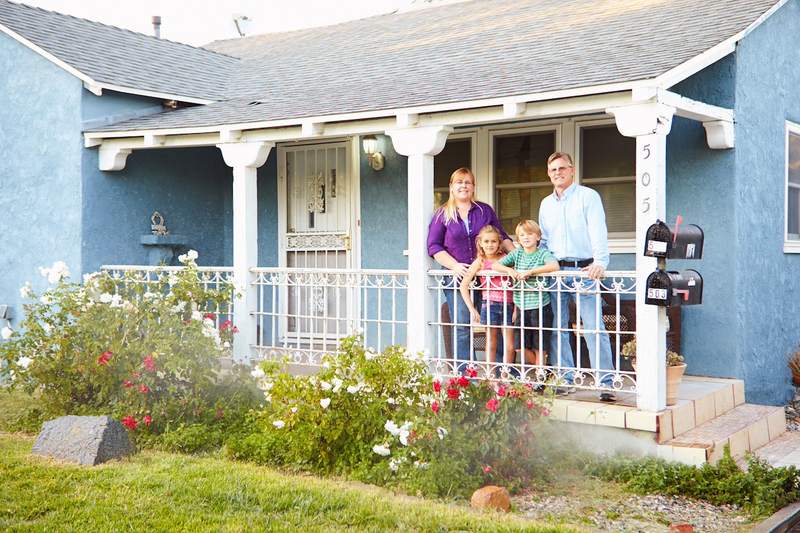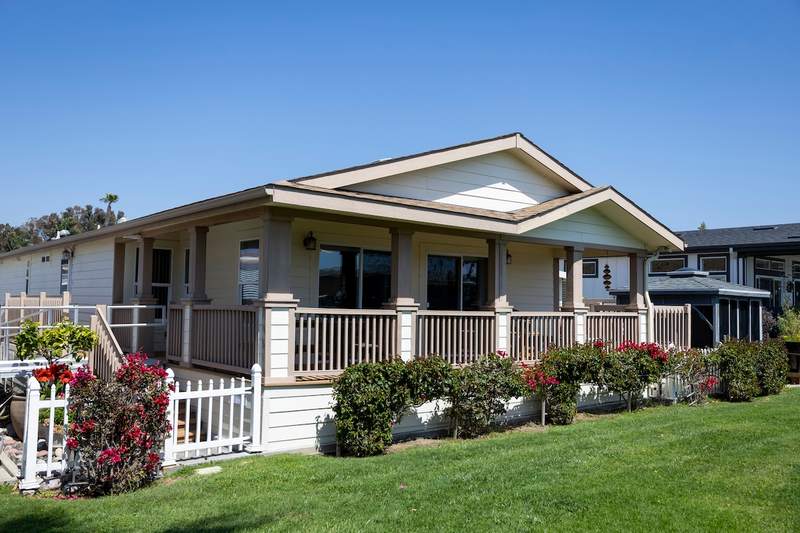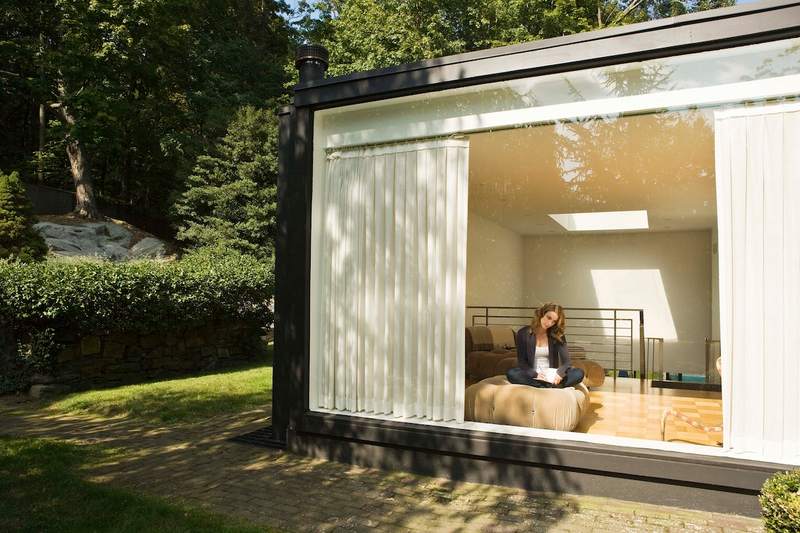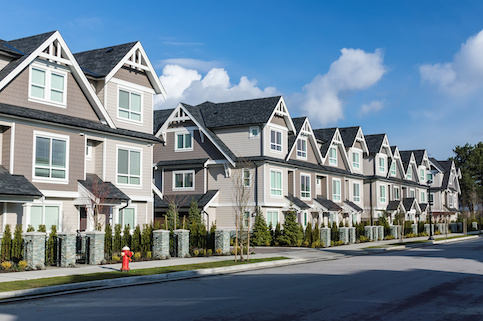If you’re in the market for a new home, one of the first decisions to make is what type of housing you want to buy. Increasingly, condos and townhomes are becoming popular thanks to their convenience and affordability. Deciding between them depends on your budget, lifestyle, and how much responsibility you want to assume. Let’s run down the main differences between townhouses vs. condos.
Key Takeaways:
- Condos and townhomes both offer an alternative to living in a single-family home.
- Condos typically are cheaper than townhomes, though you do have to pay HOA fees to cover maintenance. They also don’t usually appreciate as quickly as a single-family home.
- With townhouses, you own more than the interior of your unit – you’re also responsible for maintaining the exterior of your building.
What Is A Condo?
A condominium is one of many units in a building or complex that can sold to tenants. When you buy a condo, you buy the interior of the condo. The exterior, as well as common areas such as a fitness center, pool, clubhouse or parking garage, are managed and maintained by a homeowners association. Condo owners must pay HOA fees to cover the overall expenses of the building or complex.
Compare mortgage offers from verified lenders:
What Is A Townhouse?
Townhouses are more like single-family homes in that they usually have multiple levels and outdoor space like a backyard. However, townhouses aren’t detached properties. They’re typically part of a row of narrower homes attached through one or two walls.
When buying a townhouse, you buy the interior and exterior of the home and the property it sits on. As a result, you, as the homeowner, are responsible for all the property upkeep, both inside and outside.
Deciding Between A Condo And A Townhouse
Let’s look at the main differences between condos and townhouses.
Size And Configuration
Condos usually are in multiunit buildings, so you’ll share common walls, floors, and ceilings with neighboring units. The average condo is 1,200 square feet, though it may be larger depending on the number of bedrooms.
Townhouses are typically narrow and multilevel and are slightly larger than condos, ranging from 1,300 to 1,500 square feet. Townhomes may also include a small yard or patio.
Relative Purchase Price
Nationally, the average sales price of a condo is $353,900, though it may be higher in expensive cities such as New York or San Francisco. Townhouses tend to cost more than condos but less than single-family homes.
Financing
To buy a condo or townhouse, you can apply for common types of home loans, just like you would with a single-family home. However, condos may come with stricter requirements, and your lender may want to know more about the financial health of its HOA.
The most common type of mortgage is a conforming conventional loan. You also can use a Federal Housing Administration loan, which allows borrowers to qualify with lower credit scores, as long as the condo is FHA-approved. If you are in the military, a veteran or the surviving spouse of one, you may qualify for a Veterans Affairs loan, which has no down payment requirement.
Take The First Step To Buying A Home
Find a lender that will work with your unique financial situation.
HOAs And Fees
Condo owners usually spend less on property taxes and insurance because condos are usually smaller than single-family homes. Owners only pay taxes on the value of their unit, not on the rest of the building or complex.
Although the purchase price and property taxes are usually more expensive for townhouses, HOA fees often are lower. Because townhouse owners maintain the building and the land, there’s less need to pay for communal expenses.
On the other hand, condo owners have to pay for all improvements and repairs deemed necessary to preserve or enhance the entire property through HOA fees and dues. Plus, condominiums often offer owners amenities such as parking or a pool paid for through HOA fees.
Location
Condos are found in urban areas where high-rise buildings are more common and in apartment-like complexes in the suburbs.
Townhouses are more common in urban areas where space is tight and typically are built in rows. They’re an attractive option for people who want to live within walking distance of work, restaurants, and public transportation.
Community And Amenities
Condos often offer amenities like a pool, a fitness center, security or concierge services. And in a condo, you’re more likely to interact with your neighbors, leading to a stronger sense of community.
Townhouses have fewer shared amenities, though they may include private amenities like a garage or outdoor space. There may be less of a sense of community when you’re living in a townhouse.
Resale value
Condos usually have solid resale value but don’t appreciate as much as townhouses and single-family homes. Since townhouses are more similar to single-family homes, their value is more closely tied to the overall housing market.
FAQ
Here are answers to common questions about townhouse vs. condo.
The Bottom Line
Whether a condo or townhouse is best for your situation largely depends on your personal preferences and finances. What kind of price point, amenities, and location are you looking for? Condos are a good option for first-time home buyers looking for convenience but may not be ready for all the maintenance responsibilities of a single-family home. Townhouses have much to offer growing families that value a bit of private outdoor space.
Rachel Burris contributed to the reporting of this article.

Jamie Johnson
Jamie Johnson is a Kansas City-based freelance writer who writes about a variety of personal finance topics, including loans, building credit, and paying down debt. She currently writes for clients like the U.S. Chamber of Commerce, Business Insider and Bankrate.
